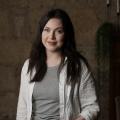
A father who was left paralyzed after a horrific car crash has restored hope to walk again.
Luke Louden, 32, was in a serious accident in August 2020 that left him with a broken neck and back along with multiple serious leg injuries.
The dad-of-four had almost no hope of walking again after the crash and 'could feel his hope drain away' after the first two years of therapy showed meagre results.
READ MORE: Meet the heroic hospital staff delivering Christmas dinner to patients
Luke said: "I was a dairyman before the accident and when I had the accident I know instantly that I was paralysed.
"The doctors didn't say there was no chance of walking, but they said there was a slim chance.
"It was really hard at the start and I didn't really know what to do.
"I was really fit and active, so to lose the use of my legs was tough."

He added: "Early in my therapy, I put so much work in and didn't see any return and I could feel my hope just draining away.
"To make things worse, it was in the middle of lockdown and I couldn't see my family for months. That was really hard."

The dad-of-four, who is being treated at Glasgow's Queen Elizabeth National Spine Injuries Unit (QENSIU), now has a fighting chance to walk again thanks to a new 'robotic therapy'.
Luke is the first patient to be treated with a robotic apparatus called the ZeroG Gait and Balance System and his progress has renewed his dreams he could one day walk his daughters down the aisle.
The machine is the first of its kind in Scotland.
It works by supporting the patient as they walk, automatically synchronising with their movements to prevent falls.


Luke said: "Quite quickly I began to feel the benefits, and now there’s less pain, fewer spasms, I sleep better and I have lost weight.
"It’s also been huge for my mental health, it’s transformed my life and how I feel."
Luke says that he has gone from 'being hardly able to move' to 'being able to walk 20 metres non-stop on the bars'.
He added: “I’d love to keep improving but, to be honest, if I couldn’t achieve any more I’d be happy the way I am.
"Just to be able to stand, even if it’s with a frame, is amazing.
“If you’d asked me six weeks ago if I could even achieve that I’d have said, don’t be daft.
"But now I can stand next to my kids.”

Luke, from Whauphill in Dumfries and Galloway, has a wife, Anna, and children Anna, 8, Chloe, 6, Mary, 4, and Isaac, 3, and they have been his inspiration and support.
“They have kept me going – especially my wife. I don’t know how I would have managed without her.
"I’ve had some really dark times, but now I can look forward with real hope.
“The dream would obviously be to walk my girls down the aisle, so I’m going to keep going, to keep trying, for Anna and all my children.
"I mean, look what this system has done for me up to now – you never know what further advances are around the corner.
“Don’t get me wrong, it’s been tough, and the future is daunting, but the team here have been amazing, and I know they’ve got my back.”

Luke has been involved in one of two research studies using the ZeroG system which he began in September 2022.
Both studies are ongoing and the results will be published in due course.
Claire Lincoln, senior research physiotherapist at the QENSIU, says the machine has helped patients and therapists 'achieve so much more' from treatment.

She said: “We are still learning the full potential of the system, but because of the support and added safety it gives patients, already it’s allowed us to try therapies earlier than would have been possible before.
“We have so many more options. We’re not necessarily doing anything different, but it allows us to try things in a different way.”
Dr Mariel Purcell, lead clinician at the QENSIU and director of medical research, adds that the ZeroG system will be 'instrumental' to helping older patients with 'lower-velocity' injuries as well.



Comments & Moderation
Readers’ comments: You are personally liable for the content of any comments you upload to this website, so please act responsibly. We do not pre-moderate or monitor readers’ comments appearing on our websites, but we do post-moderate in response to complaints we receive or otherwise when a potential problem comes to our attention. You can make a complaint by using the ‘report this post’ link . We may then apply our discretion under the user terms to amend or delete comments.
Post moderation is undertaken full-time 9am-6pm on weekdays, and on a part-time basis outwith those hours.
Read the rules here